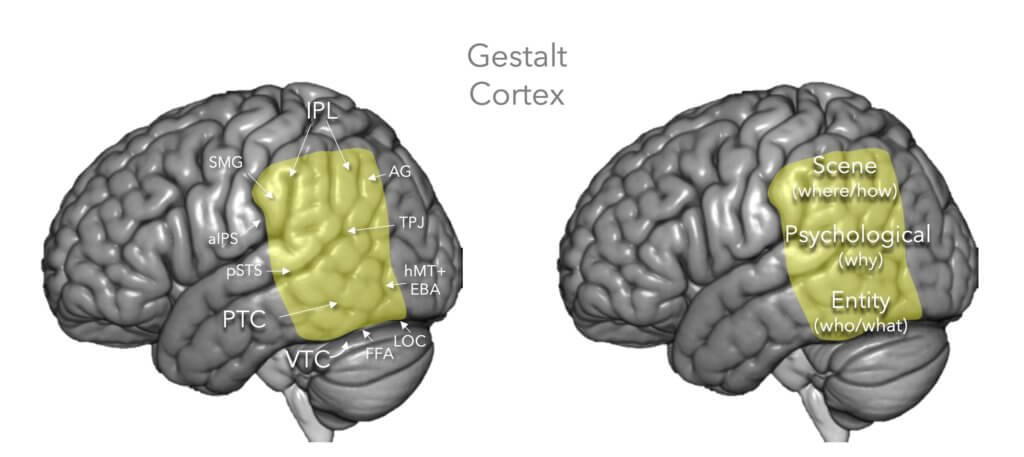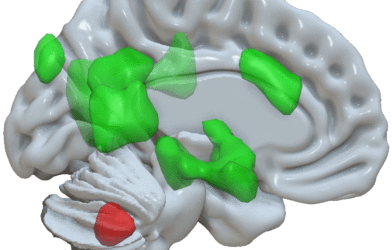As the old saying goes, “Can’t we all just get along?” It seems these days the answer is very clearly “no.” Why is this so? Why can’t we all get along? The answer could come down to biology. A study from a UCLA psychology professor reveals why people have such distrust to those who view things differently. Professor Matthew Lieberman says the answer lies in the region of the brain known as the “gestalt cortex.”
The gestalt cortex, which is located behind the ear and is situated between the parts of the brain responsible for processing vision, sound and touch, helps people make sense of information that is ambiguous or incomplete — and also dismisses alternative views.
“We tend to have irrational confidence in our own experiences of the world, and to see others as misinformed, lazy, unreasonable or biased when they fail to see the world the way we do,” Lieberman says in a statement. “The evidence from neural data is clear that the gestalt cortex is central to how we construct our version of reality.”

Lieberman points out that “naive realism” is the main culprit that causes conflict and distrust across individuals and groups. Since people mistake their own understanding of people and events as objective truth, naive realism “leads people to believe they should have the final word on the world around them.”
“When others see the world differently than we do, it can serve as an existential threat to our own contact with reality and often leads to anger and suspicion about the others,” explains Lieberman. “If we know how a person is seeing the world, their subsequent reactions are much more predictable.”
According to Lieberman’s research, a person might see someone smiling and perceive they are happy without giving it a second thought. Since those inferences are immediate, people take it as “seeing reality,” even though happiness is an internal psychological state. Lieberman says these mental acts that are coherent and effortless tend to occur in the gestalt cortex.
“We believe we have merely witnessed things as they are, which makes it more difficult to appreciate, or even consider, other perspectives,” says Lieberman. “The mind accentuates its best answer and discards the rival solutions. The mind may initially process the world like a democracy where every alternative interpretation gets a vote, but it quickly ends up like an authoritarian regime where one interpretation rules with an iron fist and dissent is crushed. In selecting one interpretation, the gestalt cortex literally inhibits others.”
The UCLA psychology professor analyzed more than 400 previous studies for his latest research.
The study is published in the journal Psychological Review.












